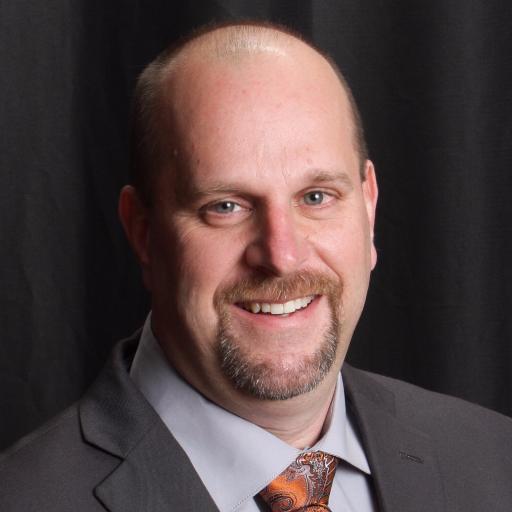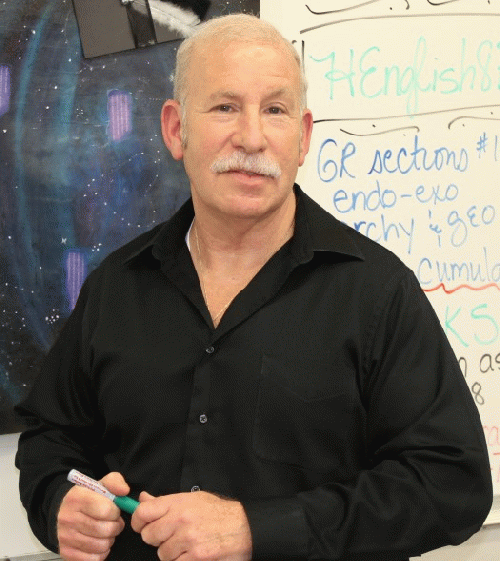lled an Individualized Education Program because it should be tailored to the individual student. That is why I have fought so hard to make sure that Special Education Centers remain open and available to serve our students who need those wonderful centers of learning."- Scott Schmerelson
In the time between Steve Zimmer's loss to Nick Melvoin and Ref Rodriguez's felony indictments, Scott Schmerelson was in the LAUSD Board's minority and, with every meeting that went by, the representative from District 3 looked more and more dejected. The tension between him and his neighbor on the dais, Monica Garcia, was noticeable to anyone watching the proceedings. As president of the board, Rodriguez had ended the committees, including the Special Education Committee that Schmerelson led, depriving him of the direct connection that it gave him to the families of the district's most vulnerable students. It promised to be a long three and a half years to the next election cycle.
With the news of Rodriguez's indictments, the light at the end of the tunnel appeared to get closer, but things would get worse for Schmerelson in the near term. Until the accused felon actually stepped down, the Eli Broad block of charter school supporters on the board still held a majority and they were determined to do as much damage as possible before losing control. Their first priority was to hire a superintendent who shared their plan to privatize public education.
Perhaps the lowest point in Schmerelson's term came in the days leading up to the hiring of Superintendent Austin Beutner. Ignoring past precedent, the board's majority would not seek consensus for the new leader of the country's second-largest school district. When they forced through their choice, their vote was hidden from the public, an alleged violation of the Brown Act. Even as the public advocated for a Superintendent who had professional experience, the contract had already been drawn up in closed session. Although he objected to this betrayal of public trust, Schmerelson was expected to maintain his silence.
It turns out that Schmerelson had too much integrity to be bullied into ignoring his conscience. First, he joined George McKenna in releasing statements that told the public when the vote had actually taken place. While the vote tallies should have been a matter of public record, Schmerelson was the one who released them on his own.
Scott Schmerelson at the NENC On May 16, 2018, LAUSD Board member Scott Schmerelson gave a special presentation at the Northridge East Neighborhood Council. Topics included special ...
(Image by YouTube, Channel: Carl Petersen) Details DMCA
Schmerelson did not stop there. In an appearance before the Northridge East Neighborhood Council, he provided details that the majority had hoped would remain secret. Schmerelson's revelations are the only reason why the public knows that Beutner was unable to answer any questions related to education or that board members had been told that he would work essentially pro bono but ended up signing a contract that pays him $350,000 annually.
In retaliation for Schmerelson's act of civil disobedience, it appears that one of his fellow board members filed a complaint with the city attorney's office, resulting in an investigation. Nick Melvoin's Speak Up also used their web site to protest against Schmerelson's honorable act. Apparently, the charter majority does not appreciate transparency.
When Rodriguez finally pleaded guilty to his wrongdoing and was forced to step down from his ill-gotten seat, Schmerelson led the effort to seat Jackie Goldberg as a temporary replacement until an election could be held. Unfortunately, the board voted against his proposal and failed to put up a candidate of their own. This left the residents of District 5 unrepresented for almost a year. The timing could not have been worse as Board Member Melvoin and Superintendent Beutner were agitating for a fight with the teachers' union.
Schmerelson was timid as the strike deadline approached and unfortunately joined in with all of the other board members in signing a letter that demonized the union's efforts and ignored their student-centered demands. However, as the strike began, Schmerelson found his footing. With the support of parents who overwhelmingly honored the teachers' picket lines, he took the lead in pushing for a quick resolution. The other board members eventually fell in behind him and an agreement was reached that improved public education in Los Angeles.
After the strike, Schmerelson seemed more secure in his role as a Board Member and showed a willingness to step up against his charter industry-funded adversaries. This bolder version of the Valley's Board Member gathered the evidence that showed charter schools were largely under-enrolled, using facts to show that unrestrained expansion of these publicly financed private schools was bad for all students, both public and charter. He was also the lone vote against the expansion of Granada Hills Charter High School into a TK - 12th-grade behemoth that threatens to destabilize neighboring schools and also Granada's own financial well-being.
If re-elected, Schmerelson should be expected to continue advocating on behalf of students, parents and school professionals at all levels. He considers the time and place of current board meetings to be a "crucial issue," saying that the board is "a public institution and should be available to the public whom we serve." When the proposed Board Meeting Accessibility to the Public resolution was presented to the board he promised to address this issue and he has followed through in significant ways. As the chairperson of both the Special Education and Parent Engagement Committees, he holds his meetings at 4:00 PM. He has also directed his staff to find a way for stakeholders to participate remotely and hopes to roll out a system shortly that would allow live participation from the Los Angeles City Hall's annex in Van Nuys.
Throughout his first term, Schmerelson has been an advocate for students with special needs and understands the challenges that they and their families face. He "absolutely support[s] changes that will make the IEP process fully collaborative" to ensure that the final outcome is "in the best interest of the student." While his predecessor tried to shut them down, he notes that he has fought "hard to make sure that Special Education Centers remain open and available to serve our students who need these wonderful centers of learning." He also says that opening magnets devoted to careers in special education on the campuses of these centers "sounds like a fantastic new frontier that should be opened".
(Note: You can view every article as one long page if you sign up as an Advocate Member, or higher).






